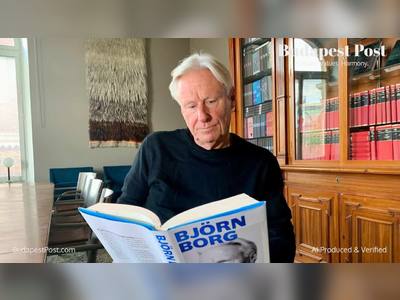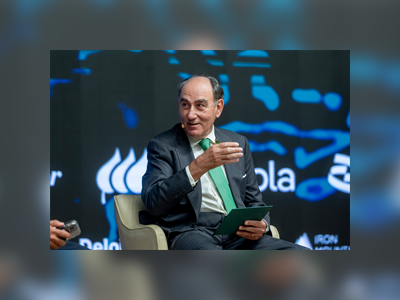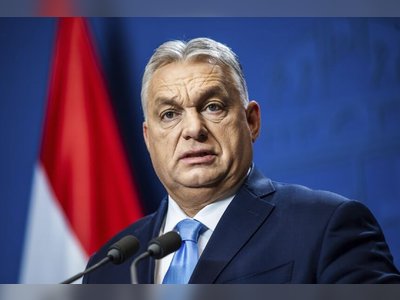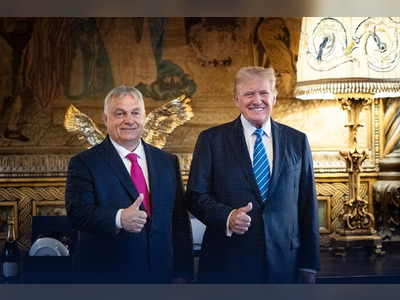Trump Orders $100,000 Fee on H-1B Visas and Launches ‘Gold Card’ Immigration Pathway
White House move raises costs for skilled foreign workers while offering fast-track residency for million-dollar investors
President Donald Trump has signed an executive proclamation imposing a one-hundred-thousand-dollar application fee on H-1B visas, marking one of the most significant changes to the program in its three-decade history.
The measure, which applies to both new applications and renewals, is intended to encourage companies to prioritise American workers while still allowing access to highly skilled foreign talent in specialised fields.
Administration officials said the fee, which may be structured as either an upfront three-year payment or annual instalments, reflects consultations with industry and is designed to reduce overuse of the program.
At the same time, Trump introduced two new investor-based residency pathways.
The so-called “Gold Card” will grant expedited visas for foreigners who contribute one million dollars individually or two million dollars via corporate sponsorship.
A higher-tier “Platinum Card” option, expected to cost up to five million dollars, would provide expanded benefits, including favourable tax treatment for qualifying applicants.
Commerce Secretary Howard Lutnick described the programs as a pivot toward attracting only “extraordinary people at the very top,” replacing what he called an outdated green-card system.
The changes come as the United States grants sixty-five thousand H-1B visas annually, plus twenty thousand for advanced degree holders from U.S. universities, a quota consistently oversubscribed.
Technology, biotechnology, and other specialised sectors that rely heavily on the program now face sharply higher costs.
While supporters argue the move will increase wages for domestic workers and generate substantial federal revenue, opponents warn it could slow innovation, deter skilled immigration, and prompt legal challenges over whether such sweeping changes can be made by executive action alone.
Unions and economic nationalists within Trump’s base welcomed the announcement as a long-awaited correction to decades of corporate reliance on lower-cost foreign labour.
But industry leaders cautioned that abrupt cost increases could harm competitiveness and force some companies to relocate operations abroad.
With the new rules set to take effect on September 21, questions remain over how the payment structure will be enforced, how renewals will be handled, and whether courts will uphold the legality of the executive order.
For now, the move signals a decisive reorientation of U.S. immigration policy toward wealth- and investment-based access, aligning with Trump’s broader “Hire American” agenda.
The measure, which applies to both new applications and renewals, is intended to encourage companies to prioritise American workers while still allowing access to highly skilled foreign talent in specialised fields.
Administration officials said the fee, which may be structured as either an upfront three-year payment or annual instalments, reflects consultations with industry and is designed to reduce overuse of the program.
At the same time, Trump introduced two new investor-based residency pathways.
The so-called “Gold Card” will grant expedited visas for foreigners who contribute one million dollars individually or two million dollars via corporate sponsorship.
A higher-tier “Platinum Card” option, expected to cost up to five million dollars, would provide expanded benefits, including favourable tax treatment for qualifying applicants.
Commerce Secretary Howard Lutnick described the programs as a pivot toward attracting only “extraordinary people at the very top,” replacing what he called an outdated green-card system.
The changes come as the United States grants sixty-five thousand H-1B visas annually, plus twenty thousand for advanced degree holders from U.S. universities, a quota consistently oversubscribed.
Technology, biotechnology, and other specialised sectors that rely heavily on the program now face sharply higher costs.
While supporters argue the move will increase wages for domestic workers and generate substantial federal revenue, opponents warn it could slow innovation, deter skilled immigration, and prompt legal challenges over whether such sweeping changes can be made by executive action alone.
Unions and economic nationalists within Trump’s base welcomed the announcement as a long-awaited correction to decades of corporate reliance on lower-cost foreign labour.
But industry leaders cautioned that abrupt cost increases could harm competitiveness and force some companies to relocate operations abroad.
With the new rules set to take effect on September 21, questions remain over how the payment structure will be enforced, how renewals will be handled, and whether courts will uphold the legality of the executive order.
For now, the move signals a decisive reorientation of U.S. immigration policy toward wealth- and investment-based access, aligning with Trump’s broader “Hire American” agenda.
AI Disclaimer: An advanced artificial intelligence (AI) system generated the content of this page on its own. This innovative technology conducts extensive research from a variety of reliable sources, performs rigorous fact-checking and verification, cleans up and balances biased or manipulated content, and presents a minimal factual summary that is just enough yet essential for you to function as an informed and educated citizen. Please keep in mind, however, that this system is an evolving technology, and as a result, the article may contain accidental inaccuracies or errors. We urge you to help us improve our site by reporting any inaccuracies you find using the "Contact Us" link at the bottom of this page. Your helpful feedback helps us improve our system and deliver more precise content. When you find an article of interest here, please look for the full and extensive coverage of this topic in traditional news sources, as they are written by professional journalists that we try to support, not replace. We appreciate your understanding and assistance.










